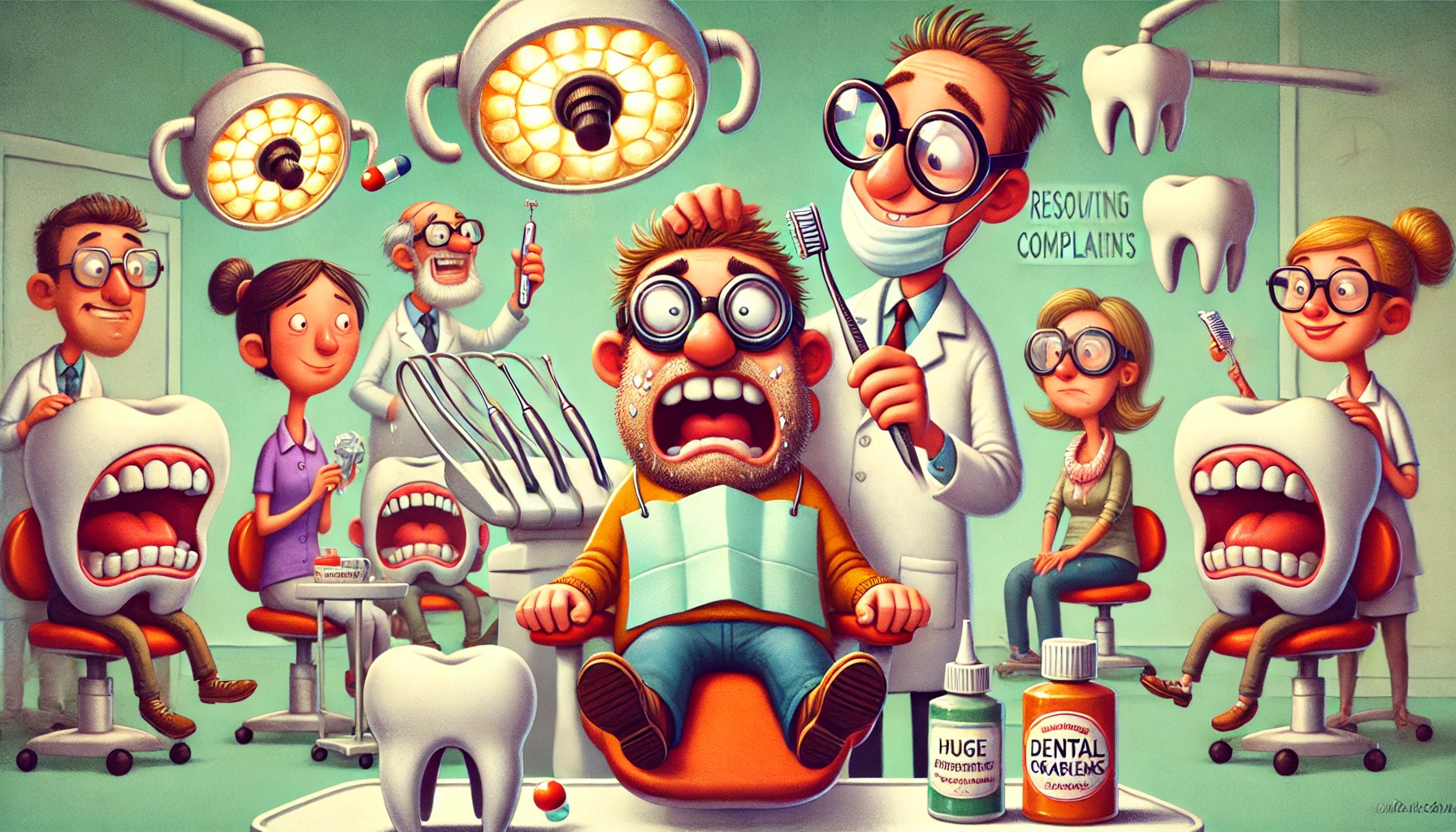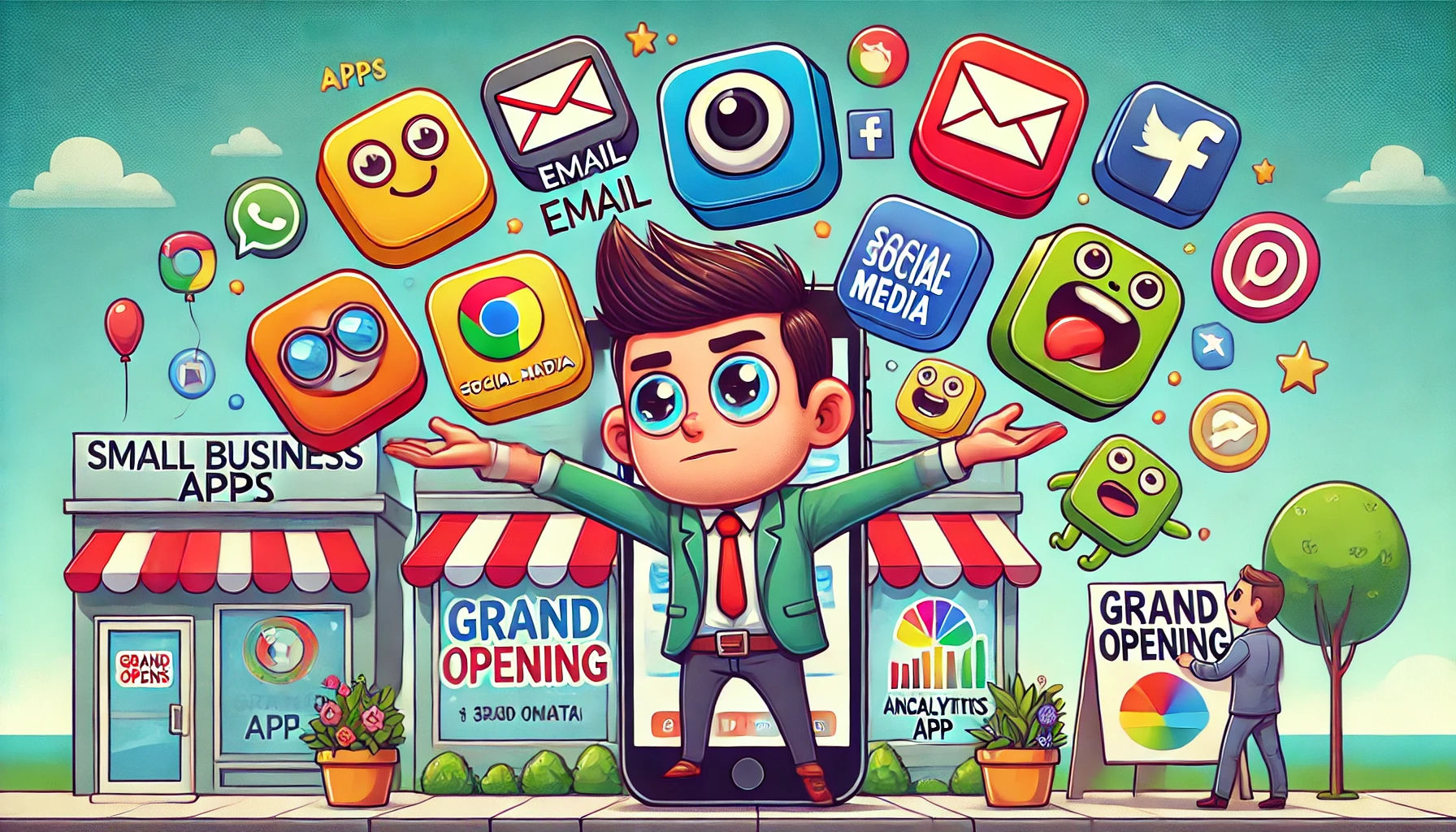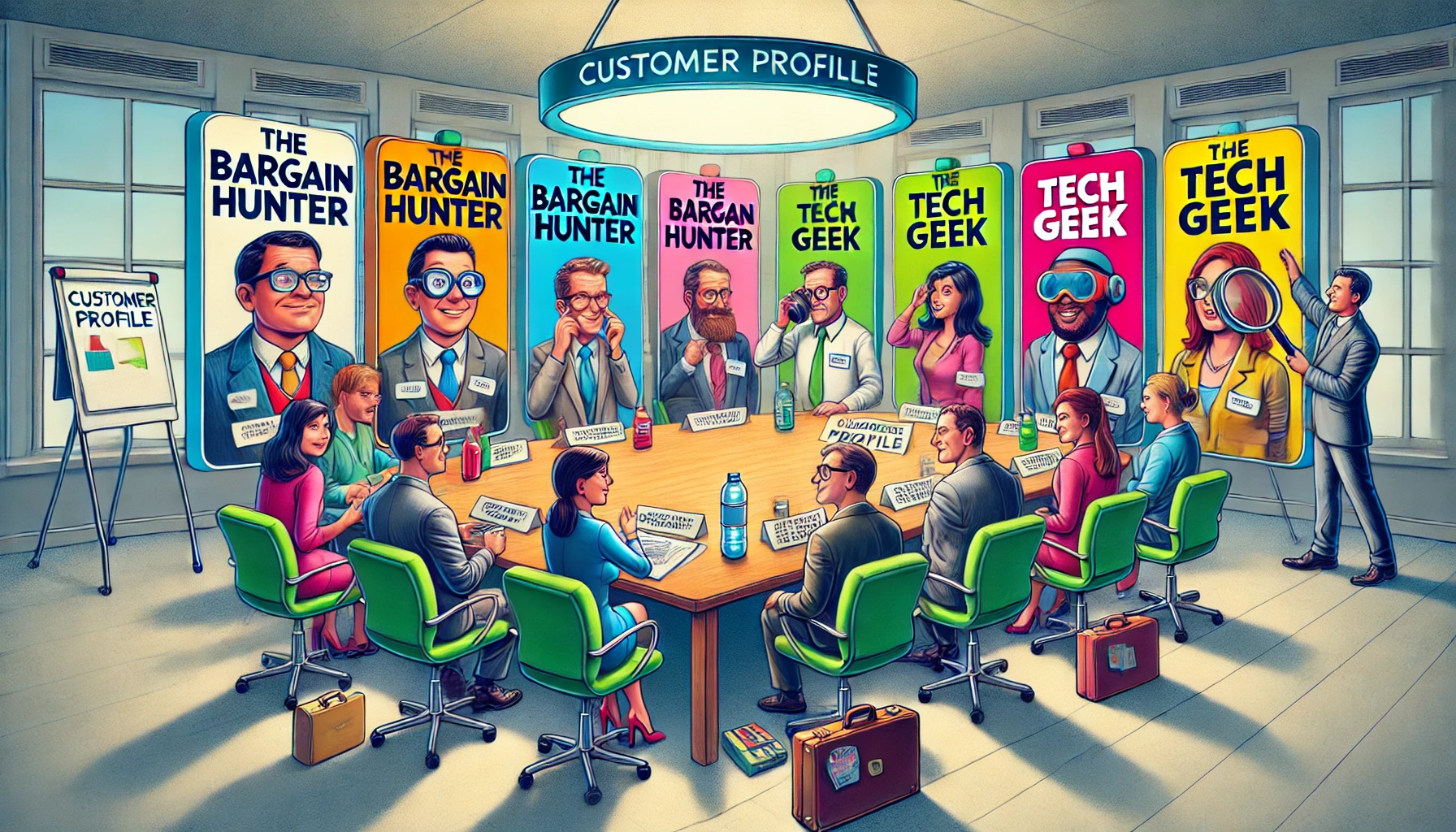Reputation management for furniture: Enhance brand trust
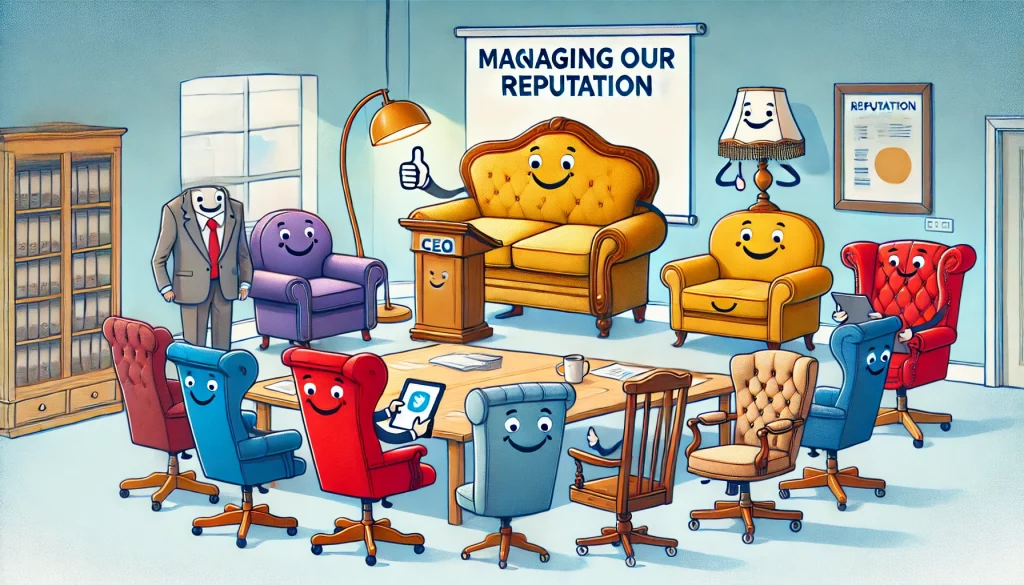
In the dynamic and fiercely competitive furniture market, robust marketing strategies are essential to differentiate your brand. Effective marketing not only amplifies awareness and boosts sales but also fosters customer loyalty, which is pivotal for sustained success.
This guide explores strategic marketing approaches tailored specifically for the furniture industry, ensuring you stand out in the marketplace.
Setting marketing goals using the SMART framework
For furniture companies, setting clear, measurable marketing goals is fundamental. Objectives such as increasing awareness, boosting sales, expanding market share, enhancing customer satisfaction, and cultivating brand loyalty require strategic foresight and precise goals.
The SMART framework—Specific, Measurable, Achievable, Relevant, Time-bound—offers a structured approach to setting and assessing these objectives. According to a study by the Marketing Research Association (2022), companies using the SMART framework have seen a 70% improvement in achieving their marketing goals compared to those that do not.
Understanding the market through segmentation
Effective marketing begins with precise market segmentation, categorizing potential customers based on demographics, location, lifestyle, and buying behavior. This strategic division tailors marketing messages and product offerings to meet the unique needs of each customer group, significantly enhancing the impact and efficiency of marketing campaigns.
Research shows that targeted campaigns can increase consumer spend by up to 20%.
Developing effective customer personas
Developing detailed customer personas based on real data and market research is crucial. These personas, encompassing demographics, lifestyle, and purchasing preferences, are instrumental in guiding tailored marketing strategies.
This ensures that marketing messages resonate profoundly with the intended audience. A recent study indicates that businesses using well-defined customer personas boost their marketing effectiveness by up to 74%.
Brand identity and value proposition
Establishing a robust brand identity involves articulating a company’s core values and mission, which influence product design and marketing strategies.
A cohesive visual identity, consistent messaging, and a clear value proposition are essential to differentiate your brand from competitors and captivate your target audience. Statistics reveal that strong brand identities can increase customer retention rates by up to 40%.
Digital and traditional marketing channels
Choosing the right mix of marketing channels, both digital and traditional, depends heavily on the target audience and predefined marketing goals. It is vital to evaluate the effectiveness of each channel meticulously and allocate resources accordingly, maintaining flexibility to adjust strategies based on ongoing performance assessment.
Mixed marketing strategies have shown to yield a 50% higher ROI compared to using single-channel approaches.
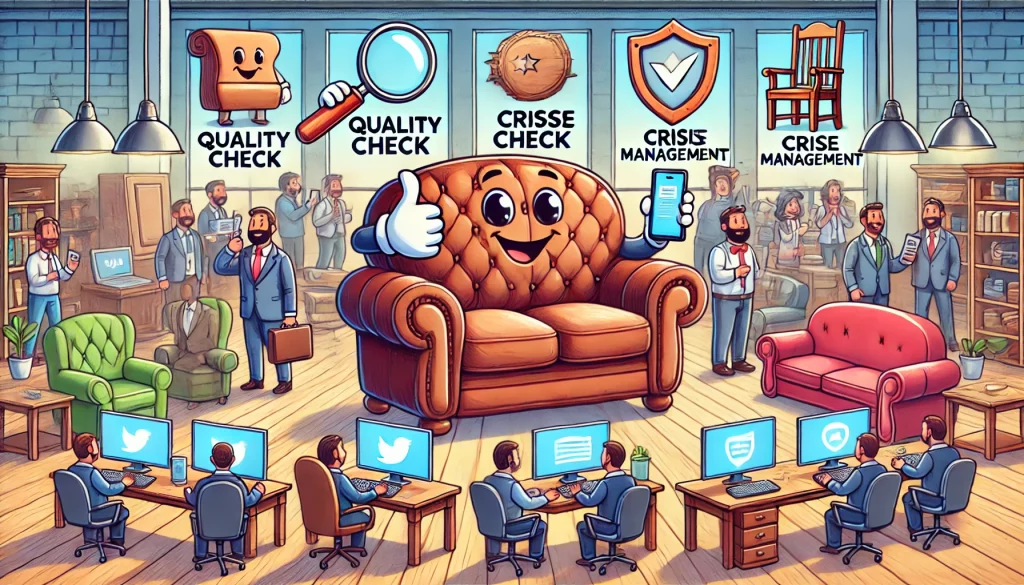
Marketing strategies and tactics
This guide covers a variety of marketing strategies and tactics, from understanding your target audience and crafting compelling content to leveraging advanced digital marketing techniques. Each section offers practical tips and delves into current trends and opportunities within furniture marketing.
Leveraging technology and innovation
Adopting technological innovations, such as 3D product rendering and AI in customer service, can dramatically enhance the shopping experience and the effectiveness of marketing campaigns. Staying agile and responsive to shifting consumer preferences and market dynamics is crucial.
Companies utilizing AI and 3D visualization report a 30% increase in customer engagement .
Sustainable practices and community engagement
Integrating sustainability into product design and marketing strategies can attract environmentally conscious consumers. Moreover, engaging with the community and maintaining transparent communication about these practices bolsters the brand’s reputation and customer loyalty.
About 85% of consumers prefer to purchase from brands with strong sustainability practices.
Continuous improvement in marketing
Furniture companies must continually assess and refine their marketing strategies based on analytics, customer feedback, and evolving industry trends. This proactive approach is vital to ensure sustained growth and competitiveness in a fluctuating market landscape.
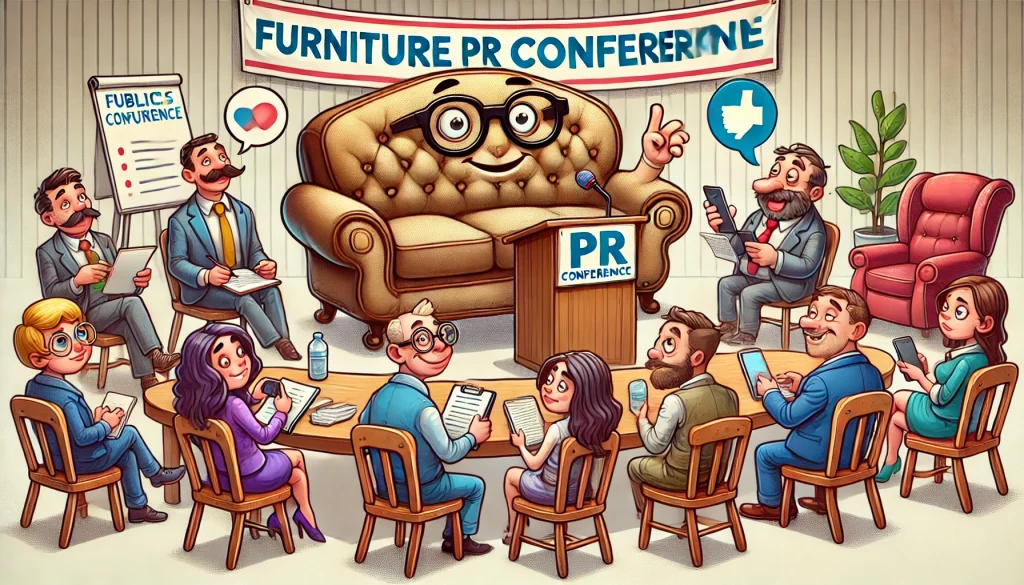
Effective reputation management for furniture businesses
As a local business specializing in furniture, managing your reputation effectively is crucial for attracting and retaining customers. In today’s digital world, where an online presence can significantly influence perceptions, it’s essential to implement top-notch reputation management strategies. Here are 10 proven strategies that can enhance how your business is viewed online:
Promote customer reviews
Encourage satisfied customers to leave positive feedback on platforms like Google and Yelp. It’s important to respond to every review, particularly the negative ones, as this demonstrates your commitment to addressing customer concerns.
Utilize review management software to keep track of and manage these reviews efficiently.
Leverage text marketing
Text messaging is an effective communication tool due to its high open rates. Send personalized texts to inform customers about new products, special discounts, or events.
This method facilitates immediate customer engagement and interaction with your brand.
Apply SEO strategies
Use Search Engine Optimization to increase your visibility online. Effective SEO can drive more traffic to your website by ensuring your furniture store appears among the top search results.
Incorporate relevant keywords related to the furniture industry into your content to boost your online presence.
Maintain an active social media profile
An active presence on social media can positively impact your online reputation. Post regularly about new arrivals, promotional offers, and behind-the-scenes content to engage your audience and foster a sense of community.
Ensure to promptly respond to comments and messages.
Display customer testimonials
Testimonials significantly enhance trust in your brand. Showcase positive customer experiences prominently on your website and social media to attract potential buyers.
Implement a responsive webchat feature
Webchat allows real-time communication with customers directly on your website. This immediate interaction helps answer queries about products, prices, and shipping.
Keep your online inventory updated
Ensure that your online inventory always reflects your current stock and pricing. Transparency in inventory enhances the shopping experience and your reputation.
Partner with interior designers
Collaborating with local interior designers can add credibility and visibility to your store. Display how your furniture fits into various decor styles on your platforms.
Offer superior after-sales services
Exceptional after-sales support can have a profound effect on your reputation. Ensure customers that you support your products post-purchase builds trust and solidifies your market standing.
Equip your staff with extensive product knowledge
Knowledgeable staff improve customer interactions by providing accurate information and assistance. Keep your team informed about new products and their features.
Implementing these strategies will not only improve your online reputation but also contribute to greater customer satisfaction and increased sales.
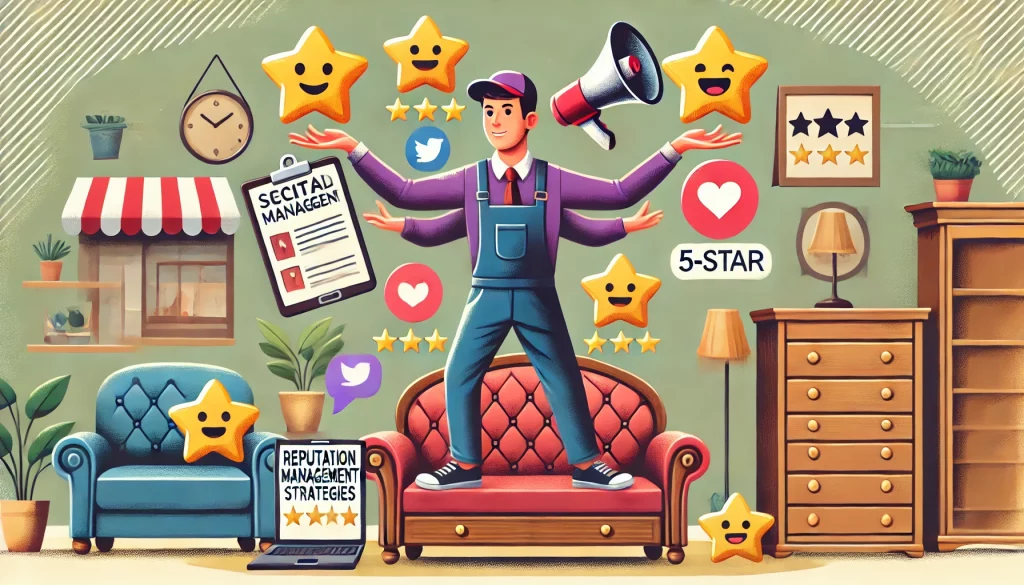
Expert opinions on reputation management
Derek Yung, SEO specialist at FurniFuture: “SEO plays a crucial role in reputation management. Negative reviews can dominate search results if not managed correctly. We use SEOptimizer to ensure positive content and customer testimonials are more visible online, overshadowing less favorable reviews.”
Natalie Porter, community outreach coordinator at Artisan Woods: “Community engagement enhances reputation. We participate in local events and sponsor community projects, which we showcase through CommunitySpotlight, a tool that helps us manage and promote these activities to strengthen our local reputation.”
Tom Bennett, director of customer relations at ComfyHome Furnishings: “Follow-up is critical. After each purchase, we use FollowUpPro to check in with our customers to ensure satisfaction. This not only helps catch and resolve potential issues early but also boosts customer satisfaction and positive word-of-mouth.”

 6 min
6 min 


